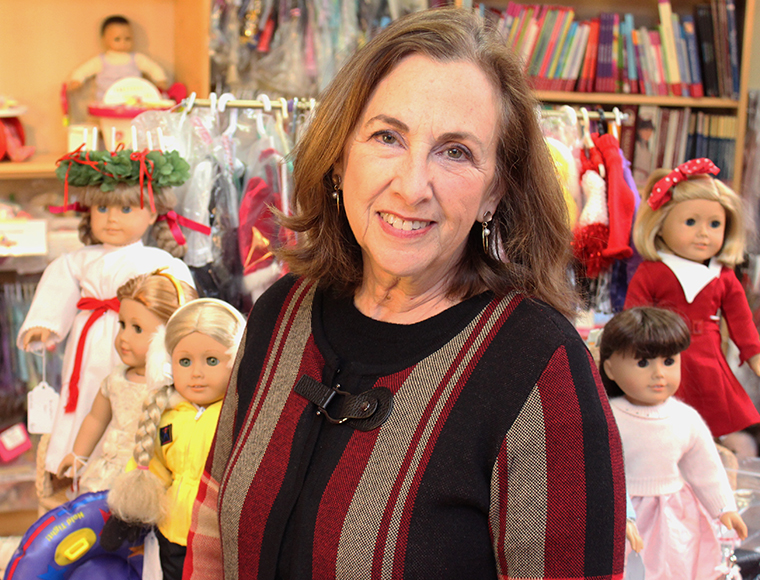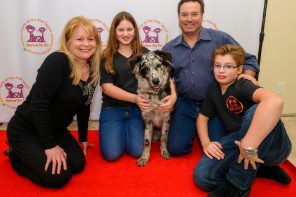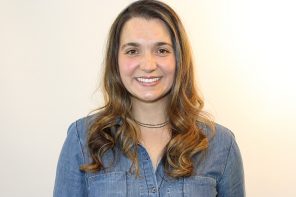Marjorie Madfis, who was in interactive marketing at IBM, had long thought about starting a nonprofit. But the crystallizing moment didn’t come until she found herself at age 57 out of her IBM job and interviewing for a position at Bloomberg. There a young man in blue jeans conducted the interview as he
texted with his feet on the desk.
“I said to myself, ‘I don’t want to be this guy’s mother,’” Madfis remembers. “That was the push. Who needs that?”
Who indeed? It turned out to be the impetus to found Yes She Can Inc., a nonprofit that seeks to empower young autistic women while rehabilitating secondhand American Girl dolls for purchase. As executive director, Madfis incorporated Yes She Can in November 2013, with the store, Girl Again, opening in February 2014 in the now-defunct Sweet Heaven Spa in Hartsdale. Ever the marketer, Madfis was testing out the concept to see if such a store would be viable. Nine months later, it moved to its present 750-square-foot pink and brink location in the heart of White Plains’ financial district. There, until the coronavirus hit, the young trainees would refurbish American Girl dolls — which represent various narratives in the American experience — and their accessories under the watchful eyes of their coaches, two coaches for every four trainees. Today, the work continues on Zoom, with one coach for every two trainees at a time. The store, which was closed from March through May, reopened in June for a sidewalk sale. Shoppers can book an appointment for up to three people for a half-hour, or drop off dolls for repair, via a scheduling app. Among those who have visited the store is Akie Abe, the former first lady of Japan.
More than a store
With new merchandise, Girl Again is a bargain for American Girl’s ardent fan base, selling dolls that are still in rotation at less than half the price of a new doll (which costs around $110) and 10 to 20% less than the price on eBay for collectible dolls that have been retired.
But as we wrote wagmag.com/a-design-for-working-with-autism/ in March 2016 WAG, the dolls are not the point. Instead their refurbishment serves as a metaphor for imagining young autistic women in the workforce. On Tuesdays, the Yes She Can group, including 13 trainees, meets via Zoom to work on networking and other core employment skills. Those on the spectrum are often intelligent and talented. But they generally lack the sensitivity to social cues that enables less-gifted people to succeed.
This past October, 25 employees of Regeneron — the boutique biotechnology company in Tarrytown that’s been in the press recently for its new Covid-fighting drug cocktail — used their annual “Day for Doing Good” to work one-on-one online with Yes She Can coaches and trainees on two separate occasions. It’s an association Madfis hopes to continue. Since her organization’s inception, she has trained 42 women, 15 of whom have gone on to other programs or college or have found work, though she acknowledges it’s not consistent.
“Extra effort needs to go in when you hire someone who’s not neurotypical,” Madfis says.
Amid the pandemic, these hires are often among the first to be laid off.
Employed again
Madfis, a White Plains resident, knows all about the perils of the workforce. She was a year and a half into a 15-year career at IBM when in 1998 her daughter, Izzie, was diagnosed with autism. That changed her career track from one climbing the executive ranks to that of an individual contributor with more job flexibility, which IBM offered. The company also had a program that covered the expenses of additional services needed to raise a child with developmental disabilities.
But in June 2013 — two years after big layoffs — IBM had a purge of 6,000 employees. Madfis’ team of nine — seven women and two men — was not immune. Of the nine, only the two men were kept on. While she was not part of the subsequent age discrimination lawsuit, she did do an interview with ProPublica, an investigative news organization that in turn held a conference at Columbia University at which John Rowe, former CEO of Connecticut-based Aetna, spoke. He noted that women over 50 cost a company four times more than men do for health benefits, which is perhaps one reason why they may be more likely to lose their jobs. (Women tend to use health services more, are healthier than men and have fared better physically — though not financially and professionally — in the coronavirus.)
Another reason women are more likely to be laid off may have to do with a society that still sees men as the primary breadwinners, even though 40% of American households are headed by women. These households tend to be less well off, in part because women still earn less than men for the same work. Though women have made strides as the economy switched from a manufacturing to a service-oriented base that drew on their people and communications skills and now dominate colleges and professional schools, service jobs are precisely the ones that have been evaporating in the distance-requiring virus.
Madfis’ ProPublica interview caught the eye of Paul Solman, economics correspondent for the “PBS NewsHour,” who profiled her along with other older workers for his “Unfinished Business” series on the “NewsHour” in November.
“IBM has maintained that age plays no role in employment actions,” he reported. “But in August, the Equal Employment Opportunity Commission determined that the company engaged in systematic age discrimination.”
For her part, Madfis is concentrating on the here and now. The 13 trainees who participate in Yes She Can’s program include two from Rockland County, one from Queens and one from the Berkshires. They would not have been able to take part if the program were not online. “So,” Madfis says, “it’s a bit of a silver lining.”
For appointments, visit girlagain.com. And for more, visit yesshecaninc.org.





